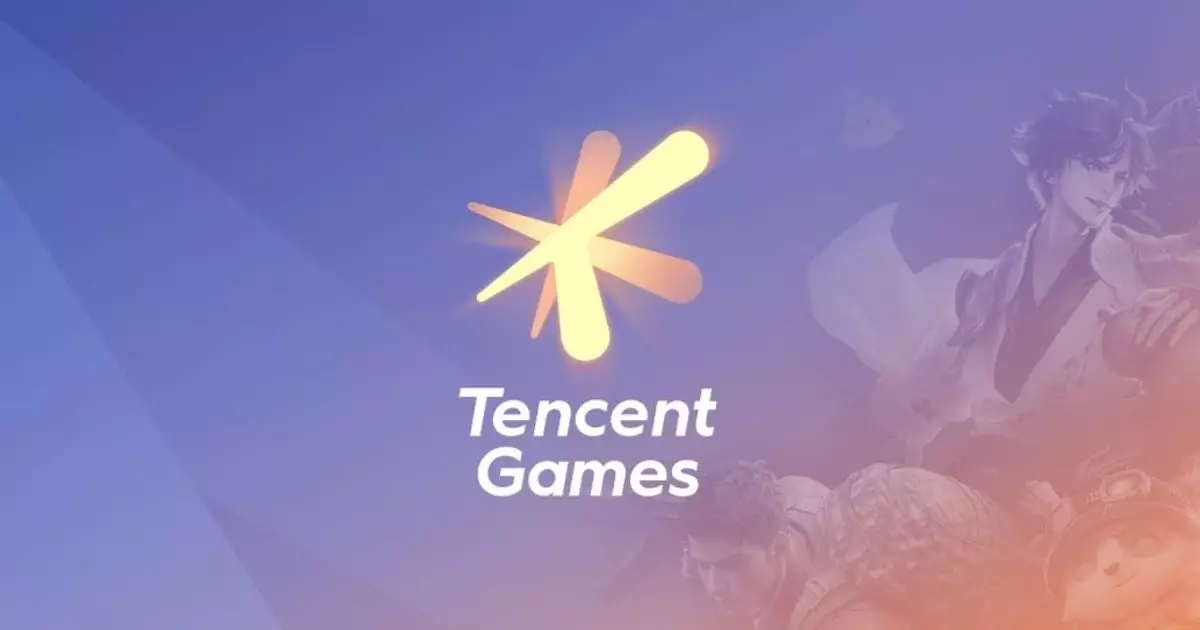In recent developments, Tencent, the Chinese video game publisher renowned for its ownership of prominent game developers like Riot Games and Grinding Gear Games, finds itself under scrutiny from the U.S. federal government. The government has classified Tencent as part of its list of Chinese military companies, a decision rooted in concerns over the alleged connections between China’s military and various civilian technology sectors. This situation underscores a growing tension between the United States and China, particularly concerning technological advancements and military applications.
The classification emerged as part of a broader strategy employed by the U.S. government, aiming to curb the perceived military influence of Chinese corporations. This tension is indicative of a larger geopolitical landscape dominated by issues surrounding national security, technology transfer, and the dual-use nature of civilian technologies that could have military implications.
Following the publication of this designation, Tencent’s spokespeople promptly pointed out what they deemed a “misunderstanding” regarding their classification. Further pushing back, Tencent’s chairman, Ma Huateng, alongside the company’s executive board, issued a formal statement that delved deeper into their position. The response, however, came off as somewhat formulaic, echoing previous statements without offering the necessary clarity or emotional weight to fully assuage stakeholder concerns.
In their response, Tencent firmly asserted that they are neither a military entity nor part of what the U.S. Department of Defense has termed “military-civil fusion.” The statement attempted to delineate the fine line between civilian technology and military applications, arguing that the relationship between the two is not as direct as the U.S. government claims. The company’s insistence on its civilian status merely reflects an ongoing struggle to separate itself from the rising tide of tensions linked to U.S.-China relations.
Tencent’s commitment to initiate a “Reconsideration Process” signals their intention to engage directly with the U.S. Department of Defense in a bid to clarify their situation. The company has made it clear that if the misunderstanding persists, they are prepared to escalate to legal proceedings. This determination sets a noteworthy precedent, as it positions Tencent alongside other Chinese firms, such as drone manufacturer DJI, that have previously challenged similar designations in court. The forthcoming legal actions underscore a resilient industry response to governmental designation, which could have ramifications beyond Tencent itself, affecting the ongoing narrative surrounding U.S.-China relations.
The legal framework invoked by Tencent will play a crucial role in the success of their challenge. By leveraging laws associated with military designations and asserting their non-compliance with military standards, Tencent seeks to bolster its case. The company argues that inclusion on the military list is not only erroneous but also carries implications that could be detrimental to their business operations, particularly in the sensitive arena of international trade and technology licensing.
The saga surrounding Tencent extends beyond the immediate implications for the company itself, reflecting broader concerns regarding tech companies’ roles on the global stage. The designation highlights the fragile nature of international investment and technological collaboration, particularly where emerging technologies are concerned. As the U.S. continues to scrutinize Chinese companies, this incident raises pertinent questions about the future of global technological partnerships and the extent to which governments may intervene in the marketplace under the aegis of national security.
Moreover, the shared experiences of firms like DJI and Hesai Technologies signal a collective urgency among Chinese technology companies to contest these designations. As these companies navigate this challenging landscape, they will need to carefully align their business strategies with evolving governmental policies and public sentiment surrounding national security, digital sovereignty, and economic competition.
The situation with Tencent presents a critical case study illustrating the complexities of modern international business amidst rising geopolitical tensions. As the company prepares for potential legal challenges while striving to protect its reputation and operational viability, the outcomes will undoubtedly have lasting repercussions not just for Tencent, but for other global tech enterprises caught in the crossfire of U.S.-China relations. Stakeholders across sectors will no doubt keep a close eye on this evolving narrative as it unfolds, serving as a barometer for future interactions in the increasingly contentious realm of technology and international relations.

